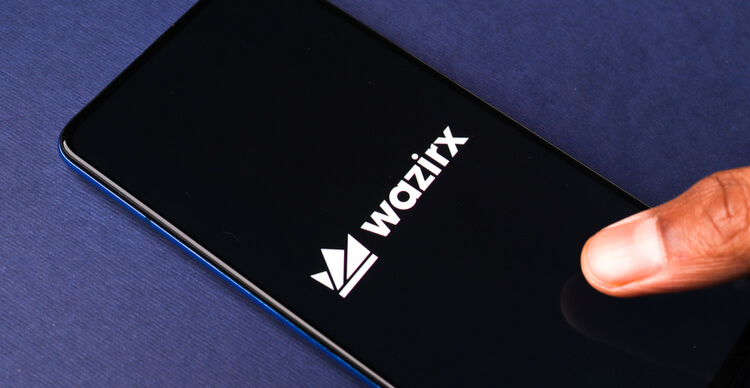The Serum is a Solana-based, totally decentralized platform. Its primary goal is interoperability, and its ecosystem’s focus is decentralization. The Serum is a simple-to-use platform that allows you to trade any crypto token for another without having to go through any KYC requirements. Serum’s DEX Decentralized Exchange (DEX) is a blockchain-based crypto exchange platform that eliminates the requirement for a traditional swap mechanism by letting users add whatever trade pairings they choose.
What is Serum?
The Serum is a decentralized exchange platform based on Solana that allows traders to buy and sell cryptocurrencies.
If you do not know what Solana is, keep reading. Solana is a blockchain platform that seeks to boost user scalability by reducing transaction settlement times. Serum may completely benefit from the speed and cost-effectiveness of transactions concluded on Solana’s blockchain by being implemented on it.
A decentralized orderbook operated by smart contracts is at the heart of Serum’s architecture, with the goal of mirroring established exchanges by connecting buyers and sellers. This allows players to send orders to Serum with a wide range of prices and order sizes, providing them complete control over their trading.
Serum proposes to operate a new type of decentralized exchange that will compete with Uniswap, Sushi, and Bancor, which all use an automated market maker (AMM).
The Serum also supports cross-chain trading, allowing traders to exchange tokens created on other platforms like Ethereum or Polkadot. Existing decentralized finance (DeFi) projects, irrespective of the blockchain they are built on, may use Serum’s features and liquidity.
Holders of Serum’s utility token, SRM, may get a 50% discount on trading costs, and stakers can vote and participate in the platform’s governance system.
Serum: roots and history
The Serum is a collaborative open-source initiative led by FTX, Alameda Research, and the Solana Foundation.
The Serum Foundation, which is sponsored by a group of specialists in cryptocurrencies, trade, and decentralized finance, is now funding its development. Many of the project’s design and thought leadership come from companies in the cryptocurrency and financial industries.
How does Serum work?
It is indeed worth noting that the Serum DEX is currently in development, and its functionality will most certainly be influenced by its evolving position in Project Serum’s future environment. The Serum DEX is supported by three main processes.
Solana’s SPL token standard is the first, followed by Serum’s interoperability protocol and Serum’s SRM cryptocurrency token. The SRM token, as well as SRM staking and voting, will be discussed in-depth in the next section.
The cryptocurrencies YFI, USDC, and USDT that you see on the Serum DEX are SPL tokens, not ERC-20 tokens. Solana’s SPL tokens are similar to Ethereum’s ERC-20 tokens. Any non-SPL token used on the Serum DEX is wrapped for use on Solana-based protocols, just how Bitcoin is wrapped for use on Ethereum-based methods.
Wrapping bitcoin
Ren’s RenVM is used to encapsulate Bitcoin in this instance.
Wrapping in cryptocurrency is as simple as handing over your cryptocurrency (for example, 1 Bitcoin) to a custodian (for instance, Ren protocol), who then mints (creates) an equivalent number of tokens on another blockchain (e.g., 1 renBTC, which can be used on Ethereum). In this case, your 1 Bitcoin is ‘backing’ an equivalent amount of renBTC, which you may use as an ERC-20 token on the Ethereum network.
SPL tokens may be converted from other blockchain currencies and exchanged on the Serum DEX in two ways: through the FTX exchange or using the Metamask browser extension/wallet. You’ll require the Sollet.io wallet in both circumstances, which is also utilized to interface with the Serum DEX. The Sollet.io wallet is not a browser plugin, and it doesn’t require any software installation. It is also completely web-based.
Wrapped SPL versions of prominent cryptocurrencies, including Bitcoin, Ethereum, and Chainlink, are available on the FTX exchange. As one might expect, FTX is the custodian of the Bitcoin, Ethereum, and other cryptocurrencies that you furnish to mint wrapped SPL versions that you can spend on the Serum DEX. When you use the FTX exchange to mint them, they are put into your Sollet.io wallet.
The Metamask wallet may convert any ERC-20 token into a wrapped SPL token equivalent. Your ERC-20 tokens will be sealed in a trustless Ethereum smart contract, and the Sollet.io wallet will produce wrapped SPL token equivalents for you to utilize in the Serum DEX when you do this.
Smart contracts
The Serum DEX is a trustless asset exchange that employs smart contracts with built-in economic incentives to allow users to trade assets across several blockchains (e.g., Ethereum for Bitcoin). This is accomplished by asking both parties to the swap to put up some form of collateral in order to complete the transaction.
If the other party in the swap does not get their assets on time, they can dispute the swap with the smart contract by sending a snapshot of the transaction request kept on the Solana blockchain. They receive the share from the sender if the dispute is valid. If it is invalid, the sender is rewarded a portion of the stake by the receiver.
Why choose Serum?
SRM token is Serum’s native cryptocurrency. Its value is derived from its utility on the network since it is the preferred method of payment for transfer costs, and participants can spend SRM to enable lower fees on Serum’s exchange.
The MegaSerum token (MSRM) is unique to Serum, and it can be obtained by locking 1 million SRM together, allowing players to get somewhat more benefits than they would with 1 million SRM tokens.
Participants must stake a minimum of 10 million SRM to operate a node and offer blockchain histories for cross-chain settlement confirmation, and each node must have at least one MSRM as part of that total.
Users who do not want to run a node but still want to earn staking incentives can outsource their SRM to any node operator and get a percentage of the reward.
SRM, like many other cryptocurrencies, has a finite supply, which means that there will only ever be 10 billion SRM coins, according to the software’s restrictions. It’s worth noting that the entire supply of MSRM tokens is 1,000.





